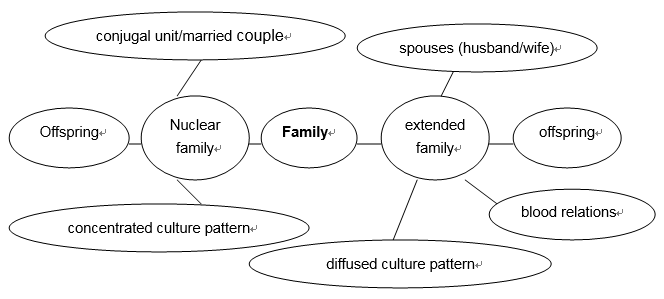Package 2 – Word Building & Recording Strategies
Word building strategies
Learning Outcomes
By the end of this section, you should be able to
✔ use specific strategies to acquire vocabulary
✔ use a dictionary effectively
Introduction
To increase your word power, it is very important to learn strategies for acquiring vocabulary. Effective dictionary skills will also help you to learn new vocabulary more efficiently. This section is designed to help you develop the ability to learn and apply these strategies and skills.
Strategies for acquiring vocabulary
The amount of reading you are expected to do for your assignments during full time education requires you to develop the ability to infer the meaning of new words by finding the logical relationship between words, phrases or sentences. This means you should be able to read ‘between the lines’. In other words, you are not expected to consult your dictionary constantly as this will disturb your reading and understanding.
Generally you will be able to work out the meaning of words by employing the following strategies.
- analysing affixes and roots
- affixes are divided into three types
- prefixes are common beginnings of words such as ‘ex’ or ‘re’
- suffixes are common endings of words such as ‘ful’ or ‘able’
- roots are common beginnings or middle parts of words
- guessing the meaning from the textual context by
- finding equivalence or similarity
- looking for contrast
- locating consequences
- identifying examples
- analysing available pictures, signs and other clues
- using a dictionary
- asking a teacher or classmate
Activity 1
This activity gives you the chance to apply the above strategies.
Read the passage below and then answer the questions.
Text 1: Population density of Hong Kong
Hong Kong’s transformation from a colonial backwater into a vibrant international city in the past fifty years has been accompanied by many problems. Perhaps the most serious problem is that of overcrowding. Hong Kong is one of the most densely populated places in the world with around seven million people living and working in an area of just over 1,000square kilometers. The high population density stems from the uneven distribution of the population, with the majority of the people living in areas with the highest concentration of jobs and investment, Kowloon and Hong Kong island. The outcome of this inequality in population distribution is that 80% of the population live on 8% of the land area. The effect of overcrowding can be seen on Hong Kong’s streets. Pollution is a tangible result of a high population density. This includes air, land, water and noise pollution. With land at a premium in the metro areas people have little choice but to pay high rents for relatively small apartments. Cramped living conditions have also contributed to hygiene problems and sparked off major health crises such as Avian Flu and SARS by making the transmission of viruses difficult to track and control. The shortage of land has triggered such measures as land reclamation around Victoria Harbour, which has provoked considerable public debate in recent years. On top of this, is the enormous pressure put on Hong Kong by the influx of mainland tourists, traders and settlers which shows no signs of abating. The cumulative effect of overcrowding is excessive pressure on both the people and environment of Hong Kong but unfortunately the property developers and owners and high-end retail outlets seems to have convinced the government not to act in the interests of the people.
Recording strategies
There are many ways of recording new vocabulary. Once you have learnt the meaning of a new word, you should try to record it in one of the ways set out here.
Memorising and consolidating new words
- connecting a word to a personal experience
- connecting a word to its synonyms (words with the same meaning) and antonyms (words with the opposite meaning)
- creating words lists and tables according to:
- topic/semantic field or
- parts of speech
- studying the spelling e.g. group words with similar prefixes or suffixes
- creating vocabulary mind maps or word-mapping as it is often called
Perhaps one of the most important things that you need to do in order to develop your vocabulary is to keep a vocabulary notebook in which you should record new words, expressions and phrases.
The following activity gives you the chance to learn how to record new vocabulary in your vocabulary notebook using the word-mapping technique.
Activity 2
1.Look at the word map and then complete Text 2 by dragging and dropping the appropriate words.

Text 2: Family types
Activity 3
Now go to the following website:
Use vocabulary items in Activity 1 and enter each word to create a series of word-map.
- transformation
- backwater
- vibrant
- density
- concentration
- tangible
- cramped
- sparked off
- transmission
- triggered
- reclamation
- abating
Click the tabs to show contents.

